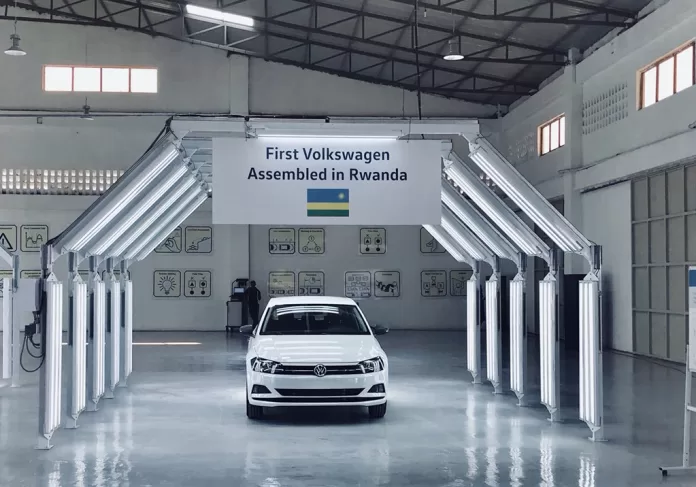
Rwanda has rolled out first domestically assembled car from the Volkswagen’s assembly plant in Kigali. The Europe’s largest automaker seeks to meet the rising demand for ride-sharing services to broaden its presence in the region. Even though not many people in Rwanda own cars, Volkswagen plans to sell vehicles and also use them for a car-sharing system similar to Uber. This means people can book rides using their smartphones. Some cars will also be sold in neighboring countries.
The Polo is the first model being manufactured at this facility, with the German automobile manufacturer targeting an annual production of 5,000 cars in the initial phase, which will also include the Passat, Tiguan, Amarok, and Teramont models. The assembly plant utilizes components shipped from South Africa to Rwanda.
This $20 million investment is expected to generate up to 1,000 jobs and serves as a crucial example of the necessary capital influx from international companies into the nation, which relies on $1 billion in foreign aid and development support but is undergoing business-friendly reforms.
President Paul Kagame, who was present at the event, emphasized that this is a significant milestone for both the country and the continent. “Africa should not serve as a dumping ground for used cars or second-hand goods,” he stated.
Currently, a majority of the vehicles on Rwandan roads are second-hand imports from countries like Japan. Car ownership in Rwanda, which has a population of 12 million, remains low, with just over 200,000 private vehicles registered since 1997, according to the country’s tax authority.
However, Volkswagen, which has existing operations in nearby Kenya, is expanding into Sub-Saharan Africa, anticipating a global increase in demand for app-based travel solutions rather than traditional vehicle ownership.
“The ultimate goal is to connect our African neighbors—Kenya, Rwanda, Nigeria, South Africa—creating a unified African market. This way, we’re talking about a billion consumers, allowing us to move away from exporting to America or Germany. The market is right here,” remarked Thomas Schaefer, Volkswagen’s head in South Africa.
Global ride-sharing platforms like Uber have not yet established a presence in Rwanda, providing Volkswagen with a competitive advantage by launching its service there before major competitors.



